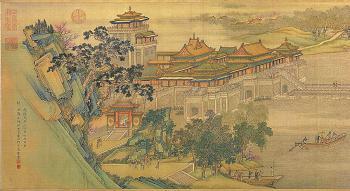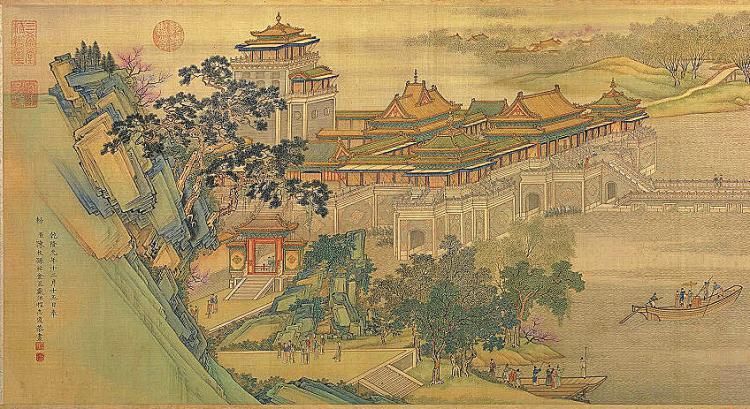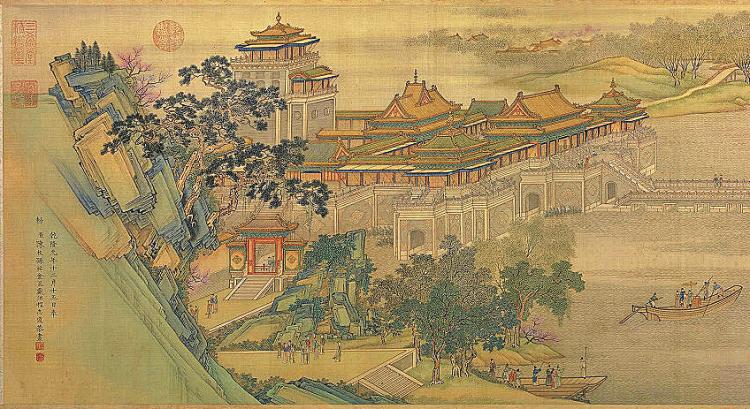The Qingming Festival originated in the “Spring and Autumn Period,” (770 BC - 476 BC). According to legends, ancient emperors, kings, generals and ministers carried out the ritual of commemorating their ancestors on the day of Qingming. The general public followed suit. And to this day people sweep their ancestors’ tombs on this day.
The Qingming Festival usually falls on or around April 5 in the solar calendar. It is a traditional holiday of the Chinese Han nationality. It is also one of the 24 solar terms in the Chinese calendar.
In ancient times children would fly kites. Some kites had bamboo flutes tied to them. When wind, or “feng” in Chinese, flew through, it made a sound like an ancient stringed zither, called “zheng”. Hence the Chinese name for kites is “fengzheng”.
Over time Qingming has become a festival rich in culture and meaning. Families go out together to tend graves and clean tombs, take walks, plant willow trees, fly kites, or play various traditional games and sports including swinging and “cuju”.
As early as the Han dynasty (206 BC - 220 AD), swinging had become a folk activity on Qingming and other festival days and is particularly popular among children.
“Cuju” is a kind of soccer that was widely enjoyed in ancient China. “Cu” means to kick, “ju” is a leather ball. The players might be court officials or everyday people, men or women. It might be for entertainment at an imperial banquet, or recreation for common folks. Legend has it that the Yellow Emperor, the common ancestor of the Chinese people, invented “cuju” to train warriors.
Because this is spring time, with trees blossoming and hillsides turning green, people like taking walks. Nowadays, many families take the opportunity to go to the countryside to enjoy nature and get away from the fast pace of city life.
Flying kites is a folk tradition widely believed to bring good fortune while warding off illness and misfortune, and planting willow trees is also thought to protect against evil.
Another tradition on Qingming is to eat cold food, thus “Cold Food Day” is another name for Qingming.
How overseas Chinese celebrate Qingming
Qingming ranks as one of the top three festivals along with Chinese New Year and the Mid-Autumn Festival. For Chinese people living overseas, Qingming is a day to think of family and relatives back home. It’s a time to appreciate and respect ones ancestors and kin, as well as traditions that date back thousands of years. The farther away from one’s home, the stronger one’s nostalgia.
New York City has become home to about half a million Chinese immigrants, with many having lived here for generations, while others have come only recently. How they spend Qingming can be as diversified as their backgrounds. Traditional immigrant organizations place advertisements in the newspaper to commemorate their ancestors and demonstrate their filial piety which is considered as great virtue in Chinese culture. They may also join group tours to local cemeteries to pay tribute to earlier generations who came to this land to become Americans. Newer immigrants tend to write or call relatives back home to send their greetings and asking them to place flowers on their deceased relatives graves on their behalf.
Indonesia has the highest overseas Chinese population, estimated to be 15 million. In 1999, when Indonesia became a democracy, the government lifted a previous ban on celebrating traditional Chinese festivals. During the past decade ethnic Chinese in Indonesia have been celebrating Chinese New Year, the Mid-Autumn Festival, and the Qingming Festival. In particular the older generation has attached special importance to the Qingming Festival. They have carried on the traditions of tomb sweeping, recalling their ancestors’ virtues and teaching filial piety so that the next generation may have a bright future.
Read the original Chinese article.







